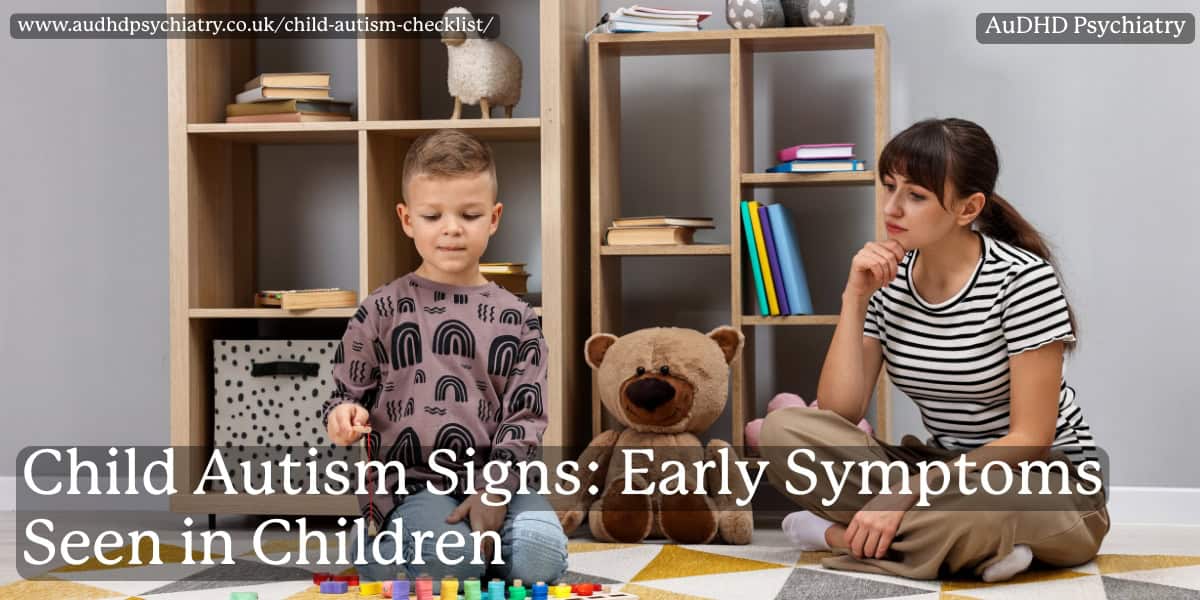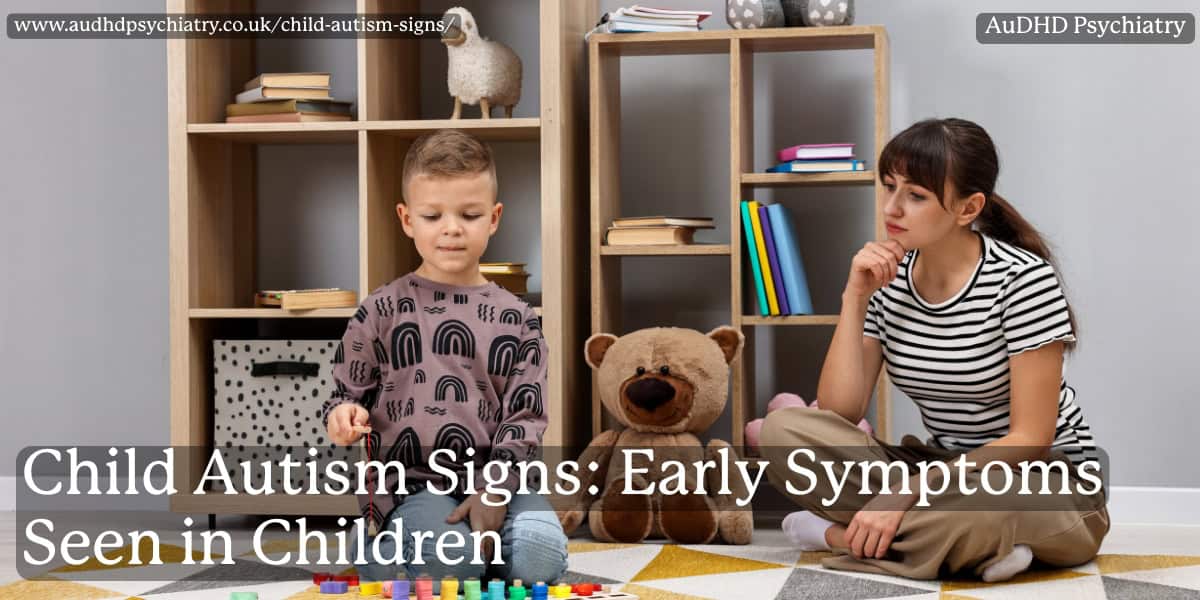
Struggling to start tasks, losing focus easily, missing deadlines – does this mean you are lazy, or could it be something more?
Attention-deficit hyperactivity disorder (ADHD) is a recognised neurodevelopmental condition that affects attention, impulse control, and executive functioning. It is not a reflection of character, nor is it the result of poor discipline or lack of motivation. Instead, ADHD involves measurable differences in brain structure, chemistry, and cognitive processes, which can significantly impact daily life.
Because certain ADHD symptoms, such as procrastination, forgetfulness, and trouble completing tasks, overlap with what many perceive as laziness, it is common for individuals to misinterpret these behaviours. This misunderstanding often delays proper diagnosis and support.
In this article, we explore the major differences between ADHD and laziness, highlight common warning signs, and explain when a professional evaluation may be needed to ensure the right treatment and care.

ADHD vs Laziness: How to Tell the Difference
It is common for ADHD behaviours to be mistaken for laziness, especially when symptoms such as procrastination, forgetfulness, or difficulty completing tasks resemble what many perceive as a lack of effort. However, there are key differences between ADHD and general laziness.
These behaviours may also signal something deeper, particularly when they persist and affect daily functioning. In reality, ADHD is a well-researched, brain-based condition that involves measurable differences in brain chemistry, structure, and executive functioning.
The key distinction between ADHD and laziness lies in the root cause of these behaviours. Laziness generally implies a lack of desire or unwillingness to act. It is often situational and may be overcome with the right incentives or external motivation. In contrast, ADHD struggles stem from executive dysfunction, which disrupts an individual’s ability to plan, initiate, and complete tasks, regardless of motivation or intent.
One of the most significant challenges for people with ADHD is inattention. This is not simply being careless or choosing to ignore tasks – it reflects difficulties with sustaining focus, managing distractions, and staying engaged with activities, even those the person cares deeply about. Forgetfulness, losing track of important tasks, and making careless mistakes are common ADHD symptoms that are frequently misinterpreted as signs of laziness.
Emotional frustration is another distinguishing factor. Individuals with ADHD often experience low self-esteem, shame, and guilt related to their struggles with productivity. They may describe feeling mentally “stuck” or overwhelmed by everyday tasks, knowing exactly what needs to be done but feeling unable to begin or follow through. This emotional weight rarely occurs in simple procrastination or occasional lack of motivation.
Hyperactivity and impulsivity also offer important clues. While laziness does not typically involve physical restlessness or impulsive behaviour, ADHD often does. This can manifest as fidgeting, difficulty sitting still, or acting without thinking. In adults, hyperactivity may present as an internal sense of restlessness or racing thoughts rather than obvious physical activity.
Executive dysfunction plays a central role in ADHD, affecting daily life far beyond just work performance. It can impact relationships, social life, household responsibilities, and even self-care routines. Understanding these differences helps move the conversation away from harmful blame and toward proper diagnosis, treatment, and support.
In the next section, we will outline specific signs and behaviours that may suggest ADHD, helping you recognise when these challenges are more than just procrastination.
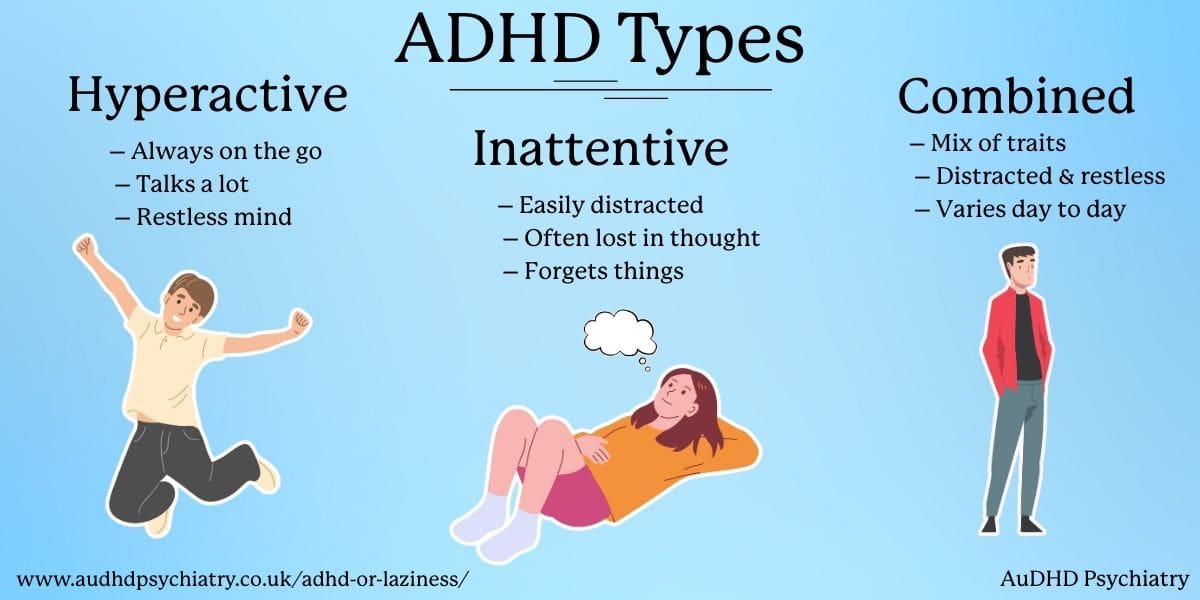
Common Signs: Do I Have ADHD or Am I Just Lazy?
Knowing how to recognise the common signs of ADHD is the first step toward distinguishing the condition from typical procrastination or low motivation. While occasional distraction or lack of focus happens to everyone, ADHD involves consistent patterns of difficulty that interfere with daily life.
Recognising the common symptoms of ADHD is important in determining whether your struggles with procrastination, focus, or time management may be signs of a deeper neurological condition.
One of the primary symptoms of ADHD is inattention. This includes a short attention span, frequent careless mistakes, and difficulty concentrating. Individuals with ADHD often find their minds wandering during conversations or lectures, struggle to follow multi-step instructions, or become easily sidetracked by external stimuli. Losing essential items like keys, phones, or paperwork is also common due to poor working memory and disorganisation.
Hyperactivity, though more noticeable in children, can persist into adulthood. This may appear as physical restlessness, tapping feet, fidgeting, or an internal sense of agitation. Some adults with ADHD describe feeling as though they are “driven by a motor,” unable to relax or stay still for long periods.
Impulsivity is another core feature of ADHD. This can involve blurting out thoughts, interrupting conversations, difficulty waiting your turn, or engaging in risk-taking behaviours without considering the consequences. These impulsive behaviours can strain relationships and complicate work and social interactions.
One of the most distinctive ADHD struggles is ADHD paralysis, which is the feeling of being mentally stuck, unable to start or complete tasks despite knowing they are important. This is not simply procrastination. ADHD paralysis often involves emotional overwhelm and frustration, leading to avoidance of specific tasks or responsibilities.
Many describe it as watching the clock tick by, fully aware of the task at hand but unable to engage with it, an experience often referred to as “waiting mode”. We discuss this comprehensively in our article on ADHD and Waiting Mode.
Hyperfocus, though seemingly the opposite of distractibility, is also a sign of ADHD. It involves intense, prolonged focus on certain tasks or interests while neglecting other responsibilities. This can make ADHD more difficult to recognise, as individuals may appear highly productive in some areas while struggling in others.
It is important to understand that these symptoms are not occasional. For ADHD, these difficulties are persistent, occur across different environments, and significantly interfere with daily life. If these patterns resonate with your experience, it may be worth getting a professional evaluation to explore whether ADHD, not laziness, is the underlying cause.
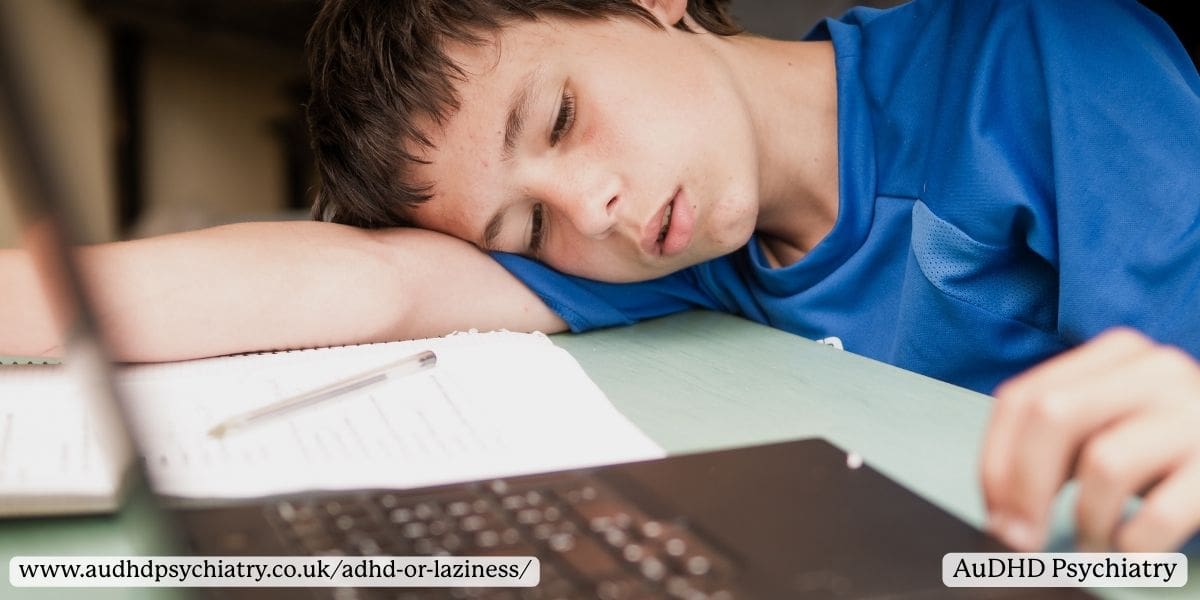
Executive Dysfunction or Low Motivation?
For individuals with ADHD, the struggle to start, manage, and finish tasks is often rooted in executive dysfunction, not a lack of effort or poor character. Executive dysfunction refers to impairments in the brain’s self-management systems, which are responsible for skills like planning, organising, prioritising, and emotional regulation. These difficulties are central to the ADHD experience and are often misunderstood as laziness or apathy by others.
Executive functioning relies on several brain regions, which include the prefrontal cortex and basal ganglia, along with primary neurotransmitters like dopamine and norepinephrine. In ADHD, these systems work less efficiently, leading to task initiation difficulties, poor working memory, and impulse control challenges. This is why even tasks that seem simple to a neurotypical person can feel overwhelming for someone with ADHD.
One major result of executive dysfunction is ADHD paralysis. This describes the inability to start tasks, even when there is a clear understanding of what needs to be done. It is often accompanied by frustration, anxiety, and feelings of helplessness. This is not about choosing to avoid responsibility. It is about the brain struggling to bridge the gap between intention and action.
Dopamine deficiency plays a significant role in these motivational challenges. Dopamine plays a vital role in the brain’s reward pathways and helps regulate motivation, attention, and impulse control. In ADHD, lower levels of dopamine mean that the typical sense of satisfaction and reward from completing tasks may be diminished, making it harder to stay engaged. This can lead to behaviours like task avoidance, unfinished projects, or seeking immediate gratification through more stimulating activities like scrolling social media or playing video games.
Low-functioning ADHD can make even everyday tasks such as doing laundry, answering emails, or preparing meals feel insurmountable. Forgetfulness, short attention spans, and difficulty organising thoughts contribute to a cycle where tasks pile up, increasing stress and reinforcing feelings of failure or inadequacy.
Organisational strategies like breaking tasks into smaller steps, using visual aids, or setting timers can help manage executive dysfunction. However, for many, these coping skills are most effective when combined with ADHD treatment options like behavioural therapy, ADHD coaching, or medication. Certain tools and resources for enhancing productivity may also help.
Understanding that these struggles stem from real neurological differences and are not about laziness, but are key to finding effective solutions. In the next section, we will explore how other mental health conditions, including depression and anxiety, can mimic ADHD symptoms and complicate diagnosis.
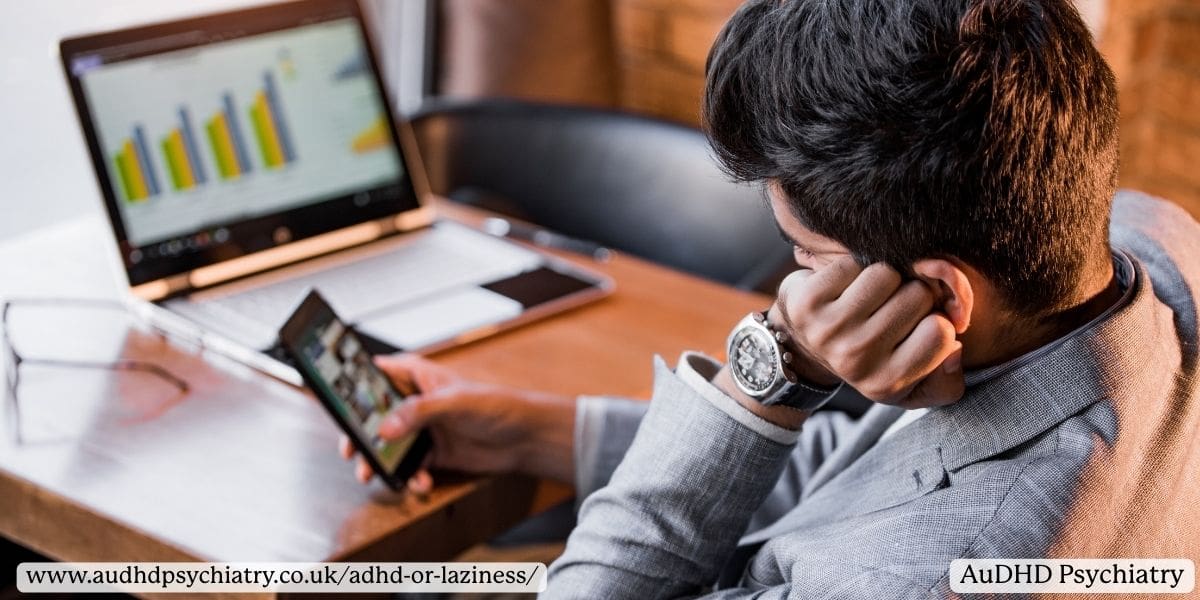
Could It Be Something Other than ADHD?
When it comes to recognising ADHD symptoms, one of the biggest challenges is that other mental health conditions can present with similar struggles. Issues like procrastination, lack of focus, and difficulty completing tasks are not exclusive to ADHD. They can also occur in people living with mood disorders, anxiety disorders, obsessive-compulsive disorder (OCD), or chronic stress-related conditions like burnout.
A common example is the overlap between ADHD paralysis and procrastination due to anxiety. As we’ve previously discussed, ADHD paralysis refers to the mental block that makes it difficult to start or finish tasks, even when a person understands their importance. In anxiety disorders, procrastination may also occur, but it is often driven by fear of failure, perfectionism, or worry about making mistakes.
The emotional cause behind the behaviour helps differentiate these experiences. While both groups may struggle with productivity, the underlying neurological mechanisms are different.
Depression adds another layer of complexity. Low mood, fatigue, and lack of motivation are hallmark features of depression. People with depression might describe feeling emotionally numb or unable to find enjoyment in activities that once brought pleasure.
Unlike ADHD, where an individual may genuinely want to engage but feels unable to focus or begin, depression often reduces the drive or interest in completing tasks entirely. Emotional regulation is impaired in both conditions, but the reasons behind it vary.
OCD is also a mental health condition that may sometimes be mistaken for ADHD. In OCD, task completion may be delayed because of compulsions, rituals, or perfectionistic standards that prevent a person from feeling satisfied with their work. In contrast, people with ADHD may struggle with disorganisation, impulsivity, and distractibility, leading to incomplete tasks not because of perfectionism but because of executive dysfunction and poor working memory.
Chronic fatigue, burnout, and other stress-related conditions can also mimic some aspects of ADHD. Mental and physical exhaustion may make it difficult to focus, prioritise tasks, or maintain daily routines. However, these issues tend to result from prolonged stress or overwork, whereas ADHD is a neurodevelopmental condition present from childhood, even if undiagnosed.
Because so many mental health issues can present with overlapping symptoms, proper diagnosis from healthcare professionals is essential. A comprehensive approach, which considers medical history, symptom patterns, and emotional health, helps differentiate ADHD from other mental health conditions. This ensures that the treatment plan addresses the right cause and effectively supports the individual’s unique needs.
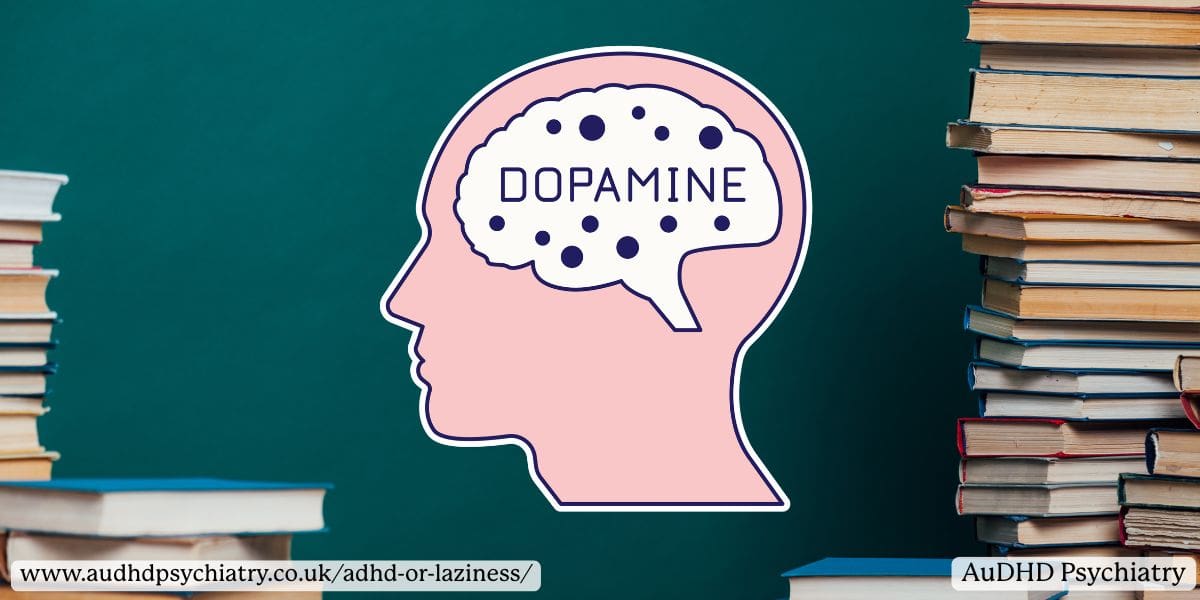
How Brain Chemistry Fuels the Misconception of ADHD Laziness
One of the reasons ADHD is often mistaken for laziness is the brain-based nature of the condition. ADHD is not about willpower or character flaws. Understanding how the ADHD brain works can help explain why motivation, task initiation, and focus are such common struggles for people with this condition.
As we’ve previously shared, scientific research has shown that ADHD involves differences in key brain regions. These areas play critical roles in executive functioning, decision-making, emotional regulation, and attention.
One of the most well-known biological factors involved in ADHD is dopamine deficiency. Dopamine imbalance can reduce the natural drive to begin or finish tasks, even when the individual fully understands their importance.
Norepinephrine, another key neurotransmitter, also plays a role in attention regulation and executive functioning. When these brain chemicals are not properly balanced, focus, working memory, and self-control suffer. These neurological differences explain why ADHD struggles are not about being lazy or unmotivated but are instead symptoms of a medical condition.
Hyperfocus, which involves intense concentration on a specific task while ignoring other responsibilities, further complicates the picture. While many associate ADHD with distractibility and forgetfulness, hyperfocus shows how motivation and attention in ADHD are not simply lacking: they are dysregulated. The person may become fully absorbed in video games or hobbies while neglecting essential tasks like work deadlines or household chores. This is not intentional avoidance but reflects how ADHD brain chemistry affects task prioritisation.
Additionally, boredom sensitivity and task avoidance are related to how the ADHD brain processes stimulation. Tasks that feel tedious or low-stimulation are particularly hard to engage with because they do not effectively activate the reward systems.
By understanding these brain-based factors, we can move away from the damaging misconception that ADHD behaviours reflect laziness. Instead, this knowledge supports the need for appropriate treatment, strategies, and compassion for those living with ADHD.
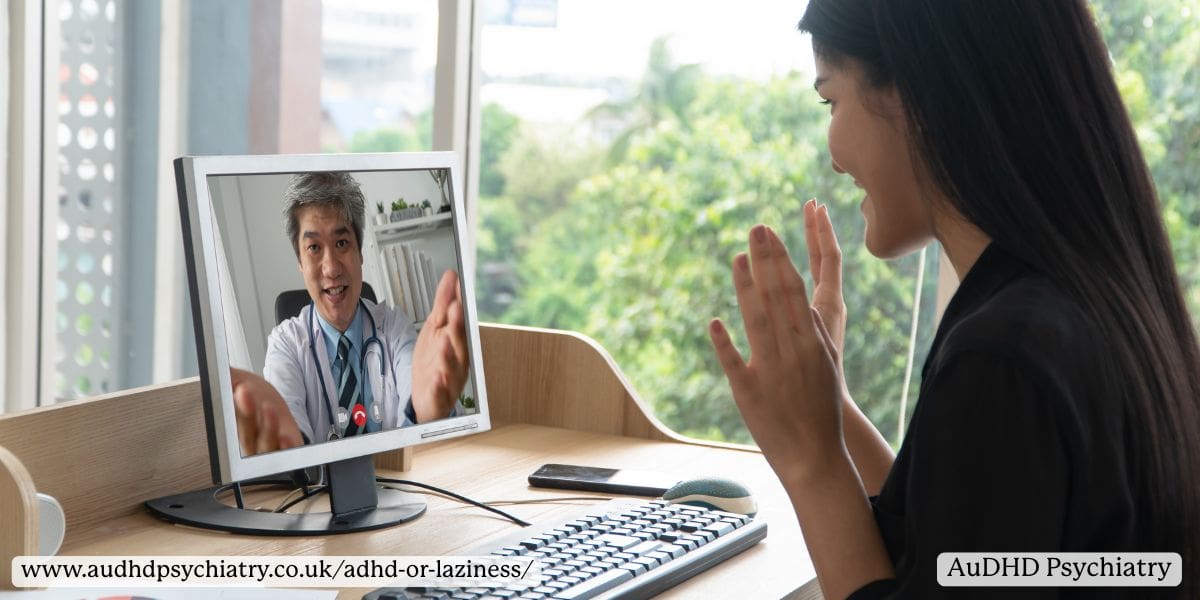
When to Seek Help: ADHD Diagnosis and Treatment
If you find that struggles with procrastination, inattention, and task completion are consistent, long-standing, and affecting your quality of life, it may be time to consider seeking professional help. Understanding whether these challenges are due to ADHD, another mental health issue, or a combination of factors requires a proper diagnosis through a healthcare provider or licensed therapist. For those looking into an adult autism diagnosis with BUPA, it’s essential to consult with specialists who can guide you through the diagnostic process.
Some common symptoms that may suggest undiagnosed ADHD include chronic disorganisation, persistent forgetfulness, emotional outbursts, difficulties with impulse control, and frequent missed deadlines. These symptoms often impact multiple areas of life, including work performance, relationships, and self-care. When these struggles are ongoing and not simply the result of poor habits or stressful periods, they may indicate the need for a professional ADHD assessment, which can often begin with an online ADHD screening tool.
Getting tested for neurodivergence typically involves several steps. Healthcare professionals use clinical interviews, symptom checklists, behaviour questionnaires, and sometimes input from family members to build a clear picture of the individual’s experience. It is important to understand that no single test confirms ADHD. Instead, diagnosis relies on a comprehensive approach guided by the diagnostic criteria provided in the Diagnostic and Statistical Manual of Mental Disorders (DSM-5).
In the UK, individuals can access ADHD assessments through the NHS or via private providers. NHS ADHD tests may involve longer waiting periods, leading some to consider private ADHD diagnosis options for quicker access to support. For those seeking timely and thorough evaluations, our private ADHD assessment in Glasgow provides a structured process carried out by experienced specialists. Regardless of the route chosen, working with qualified healthcare professionals ensures a proper diagnosis and a treatment plan suited to individual needs.
Treatment options for ADHD typically include medication, behavioural therapy, ADHD coaching, or a combination of these approaches. Stimulant and non-stimulant medications may support symptom control and improve regulation of brain chemicals like dopamine and norepinephrine, which helps in improving focus, impulse control, and motivation.
Cognitive behavioural therapy (CBT) and ADHD-specific coaching focus on building coping skills, enhancing organisational strategies, and addressing emotional challenges like low self-esteem or anxiety.
Early diagnosis, along with appropriate treatment, can significantly improve daily functioning and quality of life. Untreated ADHD can potentially increase the risk of other mental health issues (i.e. depression, anxiety, or substance abuse). Receiving the right support reduces these risks and helps individuals harness their strengths and achieve their goals.
If you or someone you know suspects ADHD could be affecting your life, consider taking our free ADHD screening test as a first step. While not a diagnostic tool, it may help clarify whether a formal assessment is worth pursuing. For a formal and accurate diagnosis, our team of experts are ready to help you. Book an ADHD assessment with us through this link.
Busting the Myth: ADHD or Just Laziness?
The myth that ADHD is laziness not only misrepresents the true nature of ADHD but also prevents many people from accessing the right support and treatment options they need to thrive.
ADHD is a recognised mental health disorder and a neurodevelopmental condition supported by decades of scientific research. The neurological factors affecting individuals with ADHD create real barriers to focus, task initiation, and time management, making everyday tasks much harder to complete than they are for a neurotypical person.
Calling people with ADHD “lazy people” oversimplifies the real challenges they face. It dismisses the emotional weight of their struggles. For many, these negative labels reinforce feelings of shame and may discourage them from seeking a proper diagnosis or professional help.
It is also important to recognise that different people experience ADHD symptoms in different ways. Some may appear outwardly productive in certain areas but quietly battle intense difficulties in others. This variation can lead to misunderstandings, even among well-meaning friends or family members.
Promoting understanding, empathy, and access to proper management strategies is the best way to challenge these myths. ADHD is not about choosing to be irresponsible or disinterested. With the right treatment plan, which may include medication, behavioural therapy, and ADHD coaching, many individuals can learn effective coping skills, reduce daily struggles, and improve their quality of life.
By moving away from blame and embracing informed awareness, we can create space for personal growth and support those living with ADHD to reach their full potential.
Conclusion: ADHD Is Not Laziness
Struggling with focus, procrastination, or task completion does not make you lazy. These can be real signs of ADHD, a recognised medical condition that affects executive functioning and impulse control. With a proper ADHD diagnosis and the right treatment options, these challenges can be managed effectively.
Early diagnosis and professional help are key to improving your quality of life. A combination of ADHD medication, behavioural therapy, and coaching can help individuals develop coping skills, strengthen support systems, and reduce the emotional toll of unmanaged symptoms.
Remember, ADHD does not limit your potential. With the right support, many individuals with ADHD lead successful, fulfilling lives and achieve significant personal growth. If you feel your experiences may also align with autism traits, consider booking an adult autism evaluation to gain a clearer understanding of your needs.
If this article resonates with your experience, consider taking the next step. Book an ADHD assessment with our team today and explore the best way forward for your needs.
To understand more about ADHD and its legitimacy, check out our blog: Is ADHD Real or Just an Excuse?
You Might Also Like
Contact Us
We’re here to answer any questions you might have.
Get in Touch
Opening Hours
Contact Form
We’re here to help. Reach out and we’ll get back to you within 24 hours (Monday – Friday).

